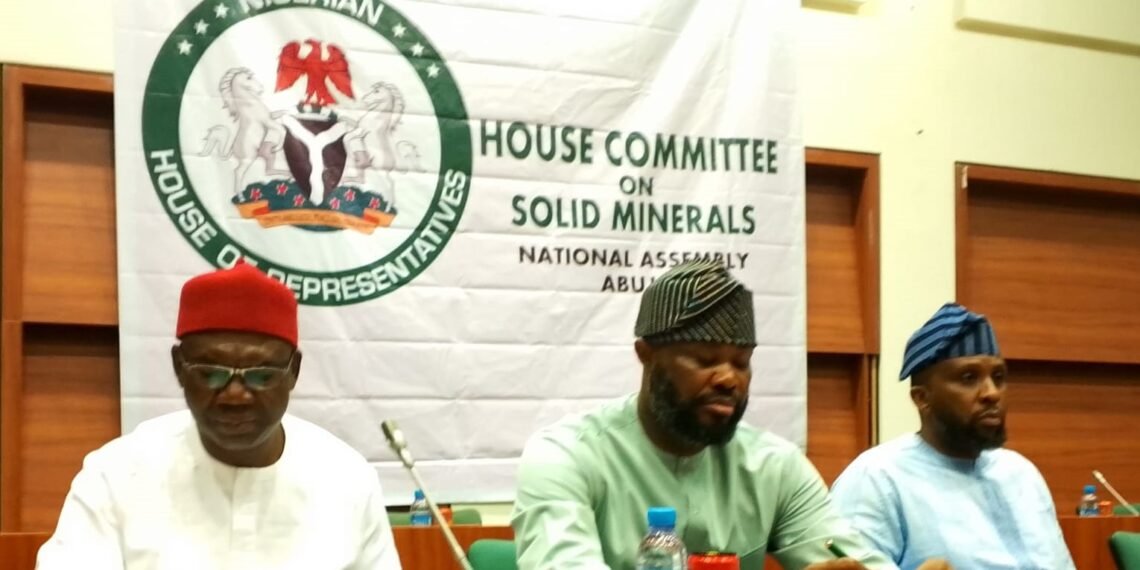In their determination to see improvement in the environment and standards of living of people in mining host communities, environmental activists have urged the House of Representatives Committee on Solid Minerals to increase the extraction net revenue to host communities.
They demanded that in the proposed re-enacted Minerals and Mining Bill, host communities should be entitled to 10 percent instead of five percent recommended by the committee chaired by Gaza Jonathan Gbefwi.
The Environmental Defenders Network (EDEN), Renevlyn Development Initiative (RDI), Community Development Advocacy Foundation (CODAF) and the Neighborhood Environmental Watch (NEW) Foundation made the demand in a memorandum to the House Committee at a public hearing on Wednesday, July 17, 2024 in Abuja.
In their resolutions, the groups insisted that the increase will be a first step in bringing about the visions of host communities in mining on benefit sharing as against the practice where they are mere spectators as their resources are carted away and their environment left in ruins.

Citing increasing awareness of Lithium deposits in Edo, Cross River, Kogi, Kwara and Nasarawa states, as well as Federal Government interest in mining Lithium in those states, the groups also asked the government to formalize artisanal and small-scale miners so that they could have access to loan facilities and start operating within the limits of acceptable standards.
Read Also: Okumagba Layout residents send SOS to Oborevwori over bad roads
In the memorandum, the groups also proposed that all small scale and artisanal miners should be documented in a Miners Register opened and domiciled in the Ministry of Mining and Solid Minerals at the states, local government headquarters and mining communities.
They frowned on the excessive powers given in the proposed Bill to the Minister of Solid Minerals in Section 4, which it said should be subject to further review as most of the functions proposed are duplications of what the Ministry of Environment should be carrying out.
For instance, the group queried Section 4 (u) of the Bill, which proposes that the Minister of Solid Minerals shall have the power to designate a mineral as a radio-active mineral and by radioactive regulations make special provisions for the exploration, exploitation, possession, export or otherwise dealing in the radio-active mineral.
Instead, it proposed that the powers of the minister of solid minerals should be shared with other ministries relevant to the subject including environment.
Specifically, they faulted items listed which the Bill proposed be included in the Community Development Agreement (CDA) such as education scholarships and employment opportunities, countering that the agreement should be flexible enough to allow the host community determine exactly what they want or what they want to use funds they get for as their needs may change depending on situations.
Explaining the committee’s motivation for repealing the former Act, Chairman, House Committee on Solid Minerals, Hon. Gaza Jonathan Gbefwi, said the Public Hearing followed the Public Policy Dialogue on the Mineral and Mining Act 2007, which was held on Monday 12 and Wednesday 13, February, 2024 where majority of the participants demanded a review of the Minerals and Mining Act 2007 to reflect current realities in the country.
Responding to their demands, Gbefwi promised that members of the committee would take the recommendations from participants at the hearing into consideration in a final document to be released in due course.






